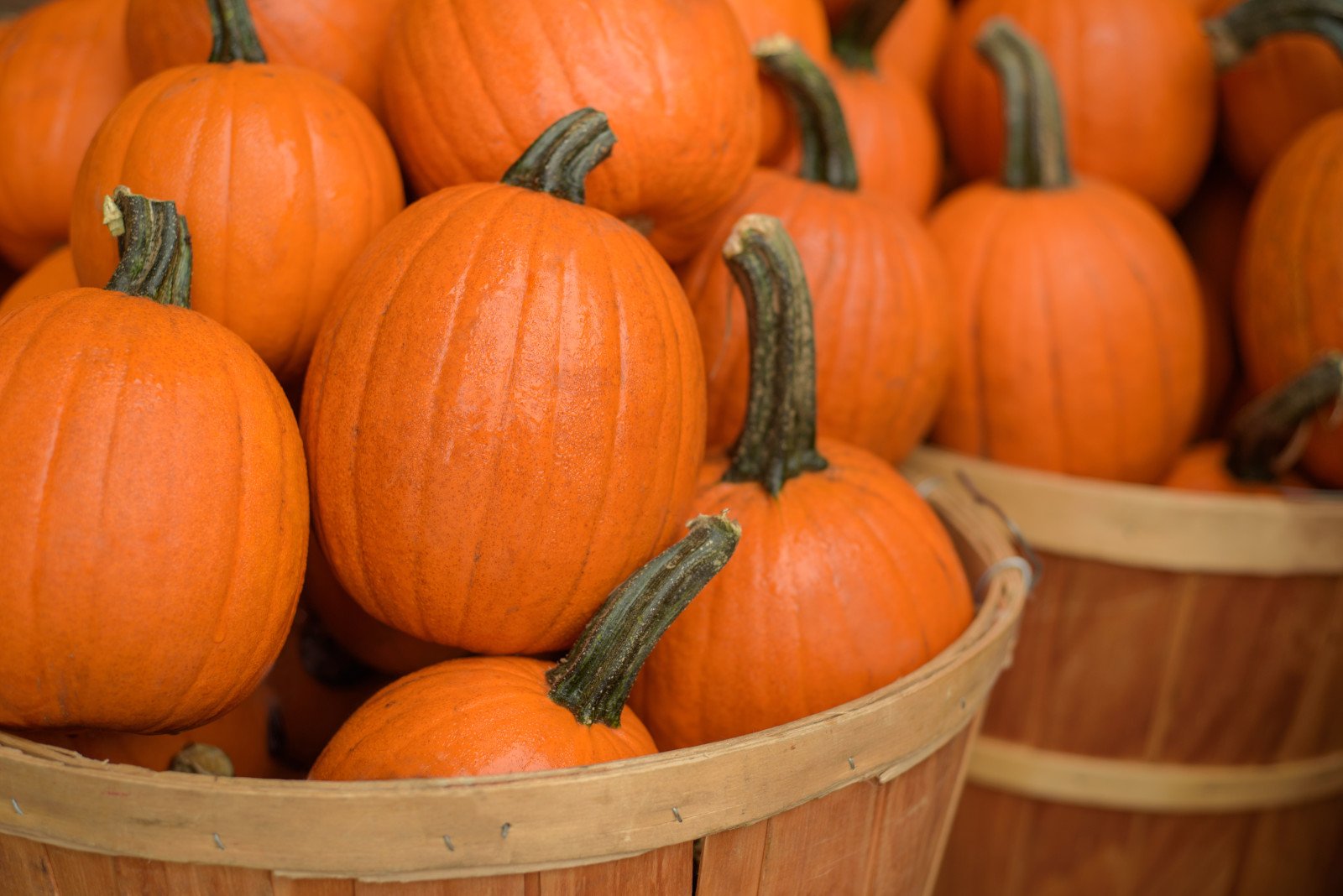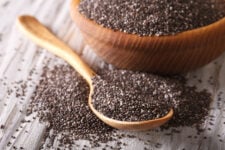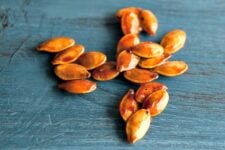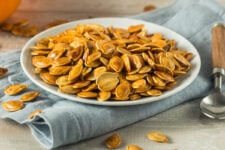Pumpkin is a staple fall ingredient, whether you’re baking up a sweet treat (like these pumpkin scones) or cooking up something more savory (like pumpkin ravioli). However, if you think your pumpkin-based culinary creations are limited by the boring convenience of pumpkin puree from a can, think again. There are far more pumpkin possibilities out there, and it all starts with picking the best types of pumpkins for eating and cooking. Here are a few of our favorites.

Sugar Pumpkins
Sugar pumpkins might be the variety of pumpkin that you’re most familiar with eating. Sugar pumpkins are also called pie pumpkins and are often used if you’re planning to make a pumpkin pie from scratch. However, you can use sugar pumpkins for far more than just delectable desserts. For example, consider branching out with this savory stuffed pumpkin recipe, containing a mixture of Italian sausage, macaroni and multiple cheeses.
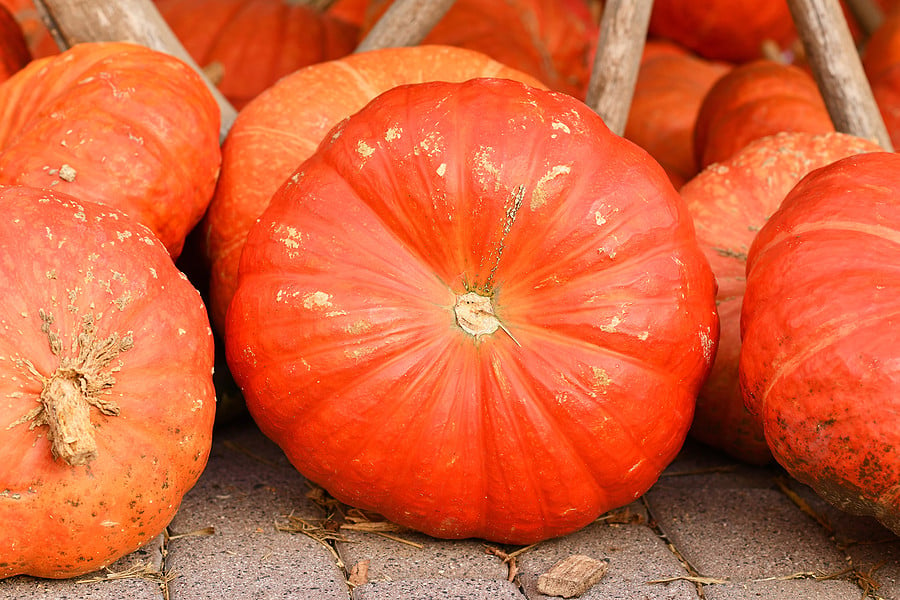
Cinderella Pumpkins
Cinderella pumpkins get their name from the classic fairytale, as they feature a whimsical, storybook look and a bright vibrant hue that makes the pumpkins popular in décor, but also for eating. The flesh is on the sweet and thicker side, and the pumpkin also packs in a lot of moisture content, making the pumpkin variety ideal for cooking a big batch of pumpkin soup.
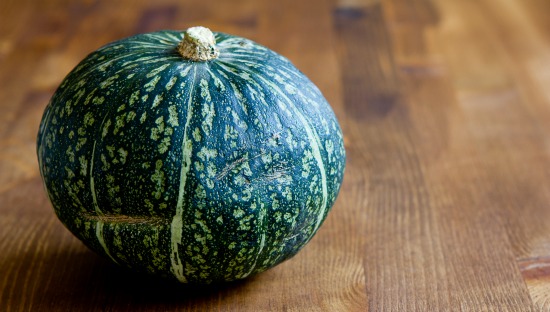
Kabocha Pumpkins
On the small side, kabocha pumpkins hail from Japan and feature a dark green exterior. Kabocha pumpkins are also sometimes referred to as kabocha squash or Japanese pumpkin. Sweet and high in antioxidants and fiber, kabocha pumpkins make a tasty, good-for-you addition to a flavorful, broth-based soup like this kabocha squash soup that also utilizes daikon radish, miso and seaweed.
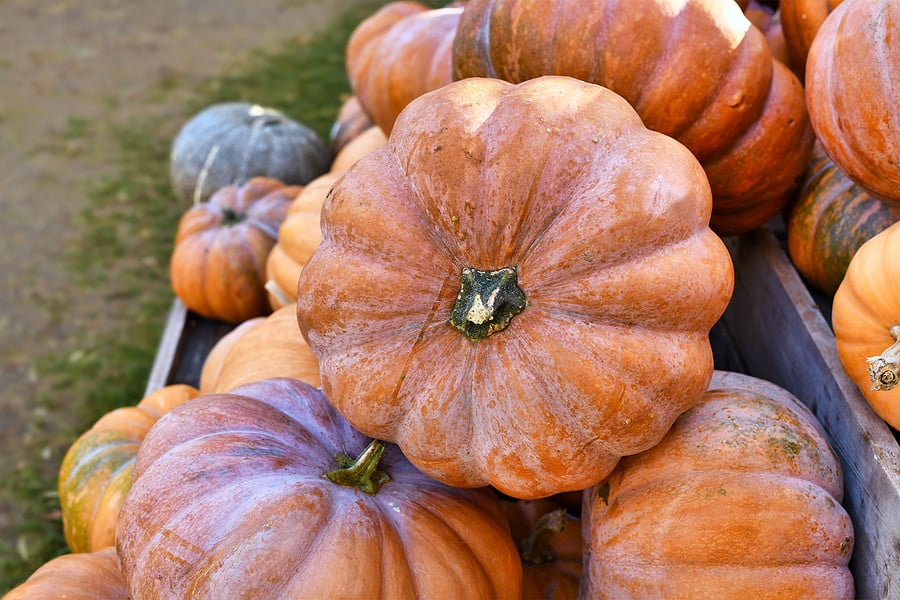
Fairytale Pumpkins
Not to be confused with Cinderella pumpkins, fairytale pumpkins aren’t quite as vibrant on the outside and are a little bit flatter in shape. The pumpkin flesh boasts deep flavors, making this pumpkin a good fit for any recipe wherein you want the pumpkin notes to really stand out. Just roast, simmer, puree or otherwise cook the flesh how you see fit and then add it to your favorite pumpkin recipe.
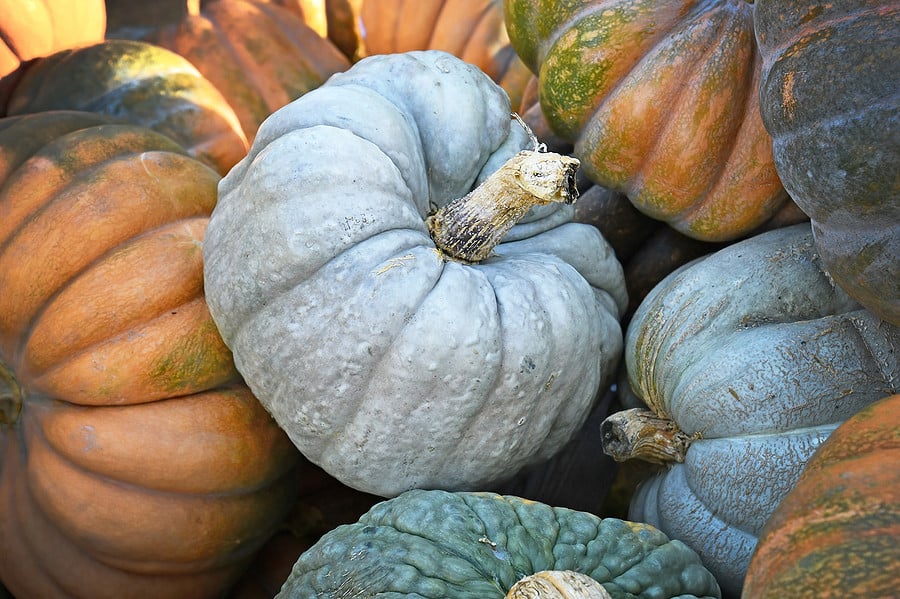
Jarrahdale Pumpkins
These New Zealand pumpkins are a bit wonky-looking, with their bumps and curves and blue-ish color. However, they’re just as tasty as they are pretty. The flesh holds up well while cooking and isn’t stringy, like what you might get with some pumpkin varieties, so pick this pumpkin if you’re wanting to roast or otherwise prepare your pumpkin in bite-sized chunks (like if you were making this marinated pumpkin salad with quinoa and pomegranate).

Styrian Pumpkins
You’ll want to pick a Styrian pumpkin for one important reason: This pumpkin variety is one of the few that contains hull-less seeds. Hull-less seeds make for easier seed-roasting and eating. (If you’ve ever tried to roast the seeds found in your standard jack-o-lantern pumpkin, you may have found the seeds’ outer hull to be a pretty big deterrent to a satisfying snacking sess.) Once you’ve acquired one of these pumpkins, roasting your own pumpkin seeds at home is easy, and you can even give them a sugary twist by candying your pumpkin seeds.
